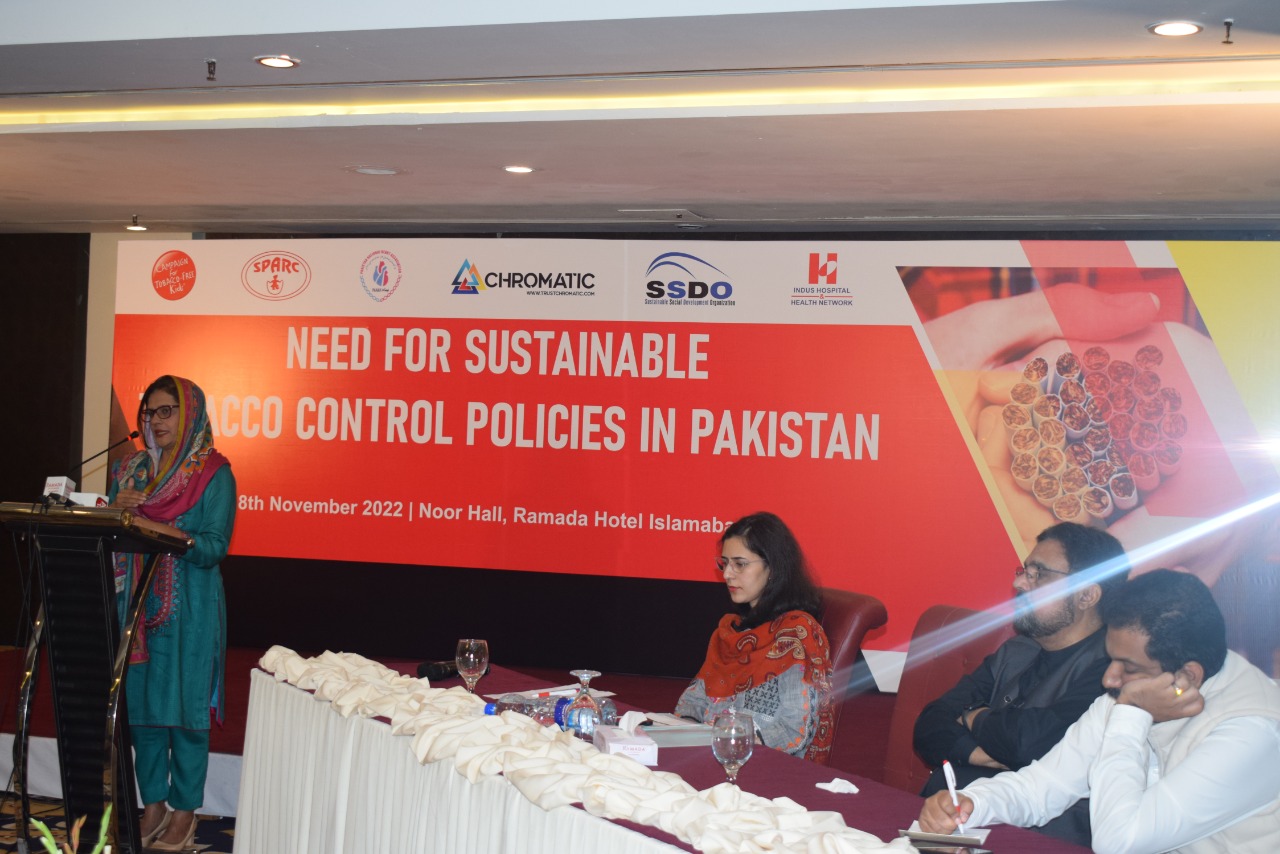ISLAMABAD: Anti-tobacco experts expressed their grave concerns about the lack of will at the government’s end to save youth from tobacco hazards. To urge the government to address the issue, a seminar titled “Need for Sustainable Tobacco Control Policies in Pakistan” was organized by ‘Society for the Protection of the Rights of Child’ at the local hotel in Islamabad on Tuesday.
Chief Guest at the occasion, Dr. Shabana Saleem, Director General, Health said Pakistan is lucky to have a majority of the population in youth who are an asset to our country. However, this youth is battling against the pandemic of tobacco. About 1200 children between the ages of 6 and 15 start smoking in Pakistan every year. We can’t let any industry deliberately target our youth to put their future in jeopardy. Pakistan’s tobacco control efforts can only become sustainable if all stakeholders i.e. government, political parties, civil society, academia and media put children’s future in front and take a joint stand against tobacco industry.
She further stated that the tobacco control cell at the ministry is active and despite limited resources, the ministry is focusing on implementation of existing policies and introducing new policies with the support of parliamentarians, civil society, academia and media.
Alarming facts related to consequences of tobacco consumption in Pakistan were shared by Dr. Ziauddin Islam – Country Lead – Vital Strategies; Former Technical Head/Director, Tobacco Control Cell, Ministry of NHSR&C; Former Technical focal Person of Govt. of Pakistan for WHO’s Framework Convention on Tobacco Control (FCTC). He mentioned that the number of smokers in Pakistan has reached up to 31 million. Tobacco consumption is causing serious health implications on Pakistanis and yearly, 170,000 people die due to tobacco consumption.
He added that Worth Health Organization has repeatedly recommended Pakistan to increase taxes on tobacco products to reduce consumption and recover the health costs. However such recommendations haven’t be implemented because tobacco industry’s influence in policymaking runs deep. The biggest example is Health Levy Bill 2019 which has been repeatedly blocked by key policymakers because of their strong working relationship with tobacco industry.
Khalil Ahmed Dogar, Program Manager, SPARC, said that Pakistan’s present as well as future depends on the survival, protection and promotion of rights, and development of its children. Therefore we must set our differences aside when it comes to children and show our full commitment for establishing a sustainable tobacco control program in Pakistan.
He added that tobacco industry has hurt national exchequer on multiple fronts such as underreporting, false claims of illicit trade, uninformed price raises etc. The huge imbalance caused by tobacco industry can only be covered through imposing additional health tax. This health tax must be separate from routine taxes so that the additional amount can be utilized on sustaining tobacco control efforts.
